- Home
- Greg Keyes
XCOM 2- Resurrection Page 3
XCOM 2- Resurrection Read online
Page 3
“We’re about a kilometer from the Greenville settlement,” Thomas said. “Amar, Chitto, take an hour’s rest. Then I need you to go down and see if it’s safe. We need supplies, and we need vehicles.”
“We have a contact there?” Amar asked.
“We do,” she said. “I haven’t been able to get through by radio, but that doesn’t necessarily mean anything. Then again, it might, so be careful.”
“I don’t need to rest,” Amar said. “I can go on in.”
“Take a nap,” Thomas said. “I don’t need you all woozy-headed; I need you thinking straight.”
He agreed, and using his backpack as a pillow, he fell asleep almost the moment his body came to rest on the rotting wood floor.
* * *
They were on patrol, back on the West Coast, almost a year ago. They were all together, joking, talking nonsense. DeLao was talking about this time a guy he knew set a slap-trap and then ended up tripping it himself that night when he got up to pee. Nishimura countered with a tale about a man who once tried to buy her from her mother for six chickens and some ice.
And then they fell strangely silent.
“This isn’t right,” Amar said. “Something is missing.”
The others didn’t reply. They just kept marching silently along.
“Really,” Amar said. “There’s supposed to another story. Something about rigging up a shoe—”
“It was a kakking boot,” Rider said. “I set up a boot to swing down and kick my brother in the face when he opened the door.”
“That’s it!” he said. “Rider!”
“Who?” Nishimura asked, a puzzled expression on her delicate features.
“Rider,” Amar insisted. “You know. She’s right back there.”
He turned to point, and there she was, her dead eyes looking at nothing, her mouth slightly ajar, gaping holes in her armor …
He jerked awake, panting wildly, unsure of where he was.
“Bloody hell,” he grunted after a moment. Reluctantly, he lay back down, hoping for some dreamless sleep.
CHAPTER 3
AMAR DID NOT feel refreshed when Chitto woke him. He felt hungover without the benefit of actually having been drunk. But he rose and—casting a longing look at his weapons and armor—started out with her on the road to Greenville.
To most people, the New Cities seemed like a great deal. They were clean and neat, and they came with a whole list of benefits. No one went hungry in the cities. No one died of malaria or the flu or a random staph infection, and even the diseases of old age could be staved off with the advanced gene therapy that the aliens had developed. More people moved to the cities every day.
But the aliens didn’t force anyone to move. And there were people who didn’t care to move to the cities, who still didn’t trust the aliens and their propaganda, who remembered that their planet had been taken by force. The independent, the stubborn, the paranoid; natural outsiders and clannish groups holding to themselves, like Chitto’s people. All of these and more chose to live outside of the places the aliens had so carefully prepared.
And the aliens allowed it, so long as they didn’t build their towns in forbidden areas. But they did nothing to make life in the settlements easy or pleasant.
Parts of the old town still stood—the courthouse, a church here and there, an old strip mall. But most of the settlement was either recently constructed or had come in on wheels. Trailers and RVs accounted for much of the living space, some solitary, with their own little yards walled off, some formed into compounds. Shacks of sheet metal, chicken wire, bamboo, cinderblocks, and other sundry materials had been marshaled to form mostly simple, but sometimes weirdly complex structures. One house on the outskirts was entirely covered in Mardi Gras beads and small plastic dinosaurs, glued into elaborate but mysterious patterns. Mysterious to Amar, anyway. Another was surrounded by wind chimes made of tire irons and frying pans.
If nothing else, the settlements had personality.
Almost every roof sported solar arrays, so they had power. A sniff of the air, however, proved they weren’t doing as well in the sanitation department.
To Amar it felt like home, even though his kampung was thousands of miles away, in a tropical climate, where people spoke different languages. While the details were dissimilar, the feel was the same. Settlement life was settlement life, wherever you were.
And the biggest fact of settlement life was the ADVENT. They appeared suddenly, often for no clear reason. They searched warm bodies and houses. They arrested people who were never seen again. Sometimes weeks would go by without a patrol showing up. Sometimes half a hundred would arrive and stay for two weeks.
Given the number he saw at the moment, it looked like the latter was happening here. Greenville was under full occupation.
“Well,” Chitto said, “this doesn’t look safe at all.”
“Yeah,” Amar said. “You want to wait here?”
She seemed to think it over.
“No,” she finally said.
“Good,” he said. “So if they question us, we’ve just come from your settlement—what is it again?”
“Conehatta,” she said.
“Does that mean something?”
“Yes,” she replied. “It means Gray Skunk.”
“Izzit? That’s kind of a funny name for a town.”
She shrugged. “I didn’t name it.”
“So we’re looking for a relative of yours,” he said. “From Gray Skunk. Is that plausible?”
“We could be looking for my uncle John,” she said. “He disappeared a while back.”
“That’ll work. Uncle John has a medical condition, and we’re going to try to talk him into moving into Gulf City for treatment.”
“He won’t go,” Chitto said.
“That doesn’t matter,” he said, starting to become impatient with her. “We just need a reason to—” He stopped when he saw the slightest curve of her wide mouth.
“Oh,” he said. “You do have a sense of humor.”
As they wound their way through the mazelike settlement, Amar began to feel naked without his armor and weapons, but they were looking to avoid attention, and humans weren’t supposed to go around armed to the teeth—or at all, for that matter. Not unless they were ADVENT.
He tried not to look at the troopers for fear his expression would betray him. The memory of Rider’s dead face was a raw wound within him, and he was afraid they might see that. Some of the ADVENT were said to be able to read minds, and although he was skeptical of that, it would be foolish to test that hypothesis at the moment. So he tried to think about kittens and flowers and move along as quickly as wouldn’t seem suspicious.
Ahead, a few of the troopers were removing debris that had been placed in front of one of their billboards, which was scrolling images of beautiful, happy people living it up in Gulf City. Meanwhile an old woman was wailing as several jabbers dismantled the wall of old carpet she had erected to hide her chicken coop. Livestock of any sort was now illegal—supposedly something to do with the contagion—but that didn’t stop people from trying to keep animals.
They reached their destination, an old Greyhound bus, without incident. Its windows were papered over, and COLD BEER was painted across the length of it in large block letters.
Inside it wasn’t as dark as he had imagined it would be; the paper was translucent and of various colors, giving the place a sort of rainbow feel. The few characters hanging out on the stools at the bar, however, didn’t have any rainbow connections whatsoever.
He and Chitto settled on two of the mismatched seats. The bartender, a young man with dreadlocks, dark skin, and darker tattoos glanced their way.
“Yeah?” he said.
“I guess I’d like a cold beer,” Amar said.
The man didn’t say anything, but he went to the single tap and filled a plastic cup. The cup bore streaks and patches of color on it suggesting it had once advertised something, probably a movie
for kids. He poured the second beer into a mason jar.
“Who wants the fancy one?” he asked.
Amar pointed at Chitto, whereupon they learned that the “fancy one” was the mason jar.
The beer not only wasn’t cold, but Amar wasn’t sure it was even beer.
“I love a cold beer,” he said. Then he waited to see how the man would respond.
The fellow stared at him for a second.
“That’s about all we have right now,” he said, nodding vaguely toward the front door. “You see how it is.”
“Yeah,” Amar said. He glanced at Chitto.
“So we’re looking for her Uncle John,” he told the man. “I don’t guess he’s been in here? John Warren.”
He didn’t know what her uncle’s last name actually was, but Warren was their black market contact in Greenville.
“He was here,” the man said. “He didn’t like the beer.”
“Do you know where he went?” Amar asked.
“How are you with directions?” the fellow said. “I don’t have anything to write them down on.”
“I can remember,” Amar assured him.
“These directions are a little … redneck. Can you deal with that?”
Amar smiled. “I think so.”
He listened carefully and then nodded.
“Thanks,” he said.
“Don’t forget to pay for the beer,” the man said.
“Right.” He reached into his pocket and plunked a small package on the counter. The bartender took it and quickly slipped it somewhere Amar couldn’t see.
Back outside, the images on the billboard had changed. It now showed dead bodies, and with a growing sense of horror, Amar realized that they were the Natives who had been with Sam. They had been stripped of their armor and dressed in settlement-style clothing. He suddenly understood what was coming and tried to turn away, but it was too late. There was Rider in a faded denim jumper, crumpled among them.
“… the work of unknown dissidents,” the voiceover was saying.
Amar felt a wet sting in the corners of his eyes. The thought of them handling her, making her part of this, this lie … the indignity of it all …
“Let’s get out of here,” he rasped. “Now.”
How he managed to hold it together until they were clear of ADVENT eyes he didn’t know, but back in the woods he broke and wept like he hadn’t since childhood. Chitto hung back, giving him a little space and making sure they weren’t followed. When he thought he was capable of holding a conversation again, he waved her up.
“I think we’re okay,” she said. “Nobody behind us.”
“Yeah. Thanks.”
They walked in uncomfortable silence for a few moments, which Chitto uncharacteristically broke.
“Did you understand his directions?” she asked.
He tilted his head yes.
“He said to take a left at old man Renfro’s back fence,” she said, a little indignantly, “and to go about half a mile to the east of Tallaboga Creek.”
“Don’t your people give directions that way?” he asked.
“Sure, to people who grew up in the area and know where things like that are. Do you know where old man Renfro’s back fence is?”
“No,” he said. “It doesn’t matter. That was all a smokescreen. Only the numbers were important. Third left, third right, third big tree, half a mile, nine-mile creek, first big pile of tires, and so on.”
“Oh,” she said. “Coordinates.”
So she wasn’t stupid. That was good.
“Exactly,” he said.
“What did you give him for the beer?” she asked.
“Penicillin,” he said. “Worth a lot on the black market.”
“You trust him?”
“Trust is all we have,” Amar replied. “Some of these guys have fewer scruples than others, but they’re all businessmen. If you do bad business, word gets around and eventually you’re not in business anymore. And they need us, too, to carry their goods through the more dangerous places or ‘liberate supplies’ from ADVENT outposts. So do I like that they gouge their own people? No. But with the aliens running things, it’s the only economy the settlements have.”
* * *
On foot, it took three days to reach their destination. This time, at least, they didn’t walk into an ambush. ADVENT ground transports were quieter than internal combustion vehicles, but they still heard it coming in time to hide in the dense vegetation that crowded up to the road.
“This road only goes one place, so far as I can see,” Thomas said. “I don’t think it’s a coincidence that ADVENT is here. What do you think, KB? Did he set us up?”
“I thought he was honest, Chief,” he told Thomas. “If he wanted to turn us in, all he had to do was yell.”
“Sure,” DeLao said. “But then everyone in town would know where his loyalties lay. How safe would he be after the jabbers were gone?”
Thomas fingered the nub of her left ear, a sign that she was conflicted.
“Amar has pretty good instincts about this sort of thing,” she finally said. “With this much ADVENT presence in the area, they may just be busting every illegal settlement they can find, and this place is definitely over the line.” She shrugged. “We’ll know when we get there.”
There wasn’t much to the place: part of a ruined corrugated metal building, four shipping containers that had been welded together to form a square, and a few smaller shacks arranged on what had once been a parking lot. Also in sight were two pickups, a minivan, and a pair of ADVENT ground transports. The troopers themselves didn’t seem to be in any particular state of readiness. Four were visible, but there were likely more inside.
They were looking at all of this from the relatively dense forest surrounding the clearing.
“Toby, do you see a spot?” Thomas asked.
They were close to the river, and the landscape was flatter than ever. There were plenty of trees, though.
Toby had other ideas.
“Over there,” he said, extending his lanky arm. “The bridge.”
Amar hadn’t spotted it, but now that the sharpshooter pointed it out, he could see the concrete supports. It wasn’t the main bridge that crossed the river—that was gone—but rather a smaller one to take the road over swampy ground bordering the river.
“That’s about three hundred meters,” Thomas said.
“Yeah,” Toby said. “That’s about what I make it.”
“Okay,” Thomas said. “Go get in position. I can’t spare anyone to watch your back.”
“Understood,” Toby said. He turned and trotted off through the woods.
“KB, Chitto,” Thomas continued, “work your way around to the other side of the clearing, about eleven o’clock. When Toby’s first target goes down, we’ll lay down fire from here. Nishimura, you’re over there at two o’clock. You all know the drill.”
“Got it, Chief,” Amar said.
Amar had barely settled into position when he heard a metallic thud and saw one of the troopers crumple almost gracefully to the ground. Predictably, the others scrambled for cover. Two ran directly into the rocket Dux launched at them. Two more turned and sprinted straight for him and Chitto, trying to get around behind the containers.
He was waiting for them to come into range when Chitto’s shotgun boomed. The troopers, surprised but unhurt, unloaded into the trees. Amar ducked further behind the pine, but the mag rounds punched right through it.
Alamak, he gritted. Bloody hell!
He rolled out and opened up on the nearest, but both suddenly broke and ran toward transports. One of them went down like a sack, another victim of Toby’s eagle eye, but the other made it and was joined by a couple from the building. One of them had the flattened helmet and red sash of a captain.
The door closed, and the vehicle jerked into motion. A grenade exploded next to it but didn’t slow it down.
Amar stared after the retreating transport.
; “What?” Chitto said.
“I’ve never seen them give up so easily,” he said.
“Easily? We killed four of them.”
“Yeah. And by the way, next time you’re ready to give away our positions to the enemy, please wait until they’re close enough for that boom stick to actually hurt them, okay?
She nodded, her round face darkening a little.
They moved up the container house.
Amar kept his weapon aimed at the front door, sure there had to be some trick in this, but then Nishimura stuck her head out.
“All clear,” she said. “But there’s someone in here.”
CHAPTER 4
SHE WAS YOUNG, probably no more than twenty. Her light brown hair was clipped just below her ears, and she wore a belted yellow smock and dark green pants.
DeLao was already examining her, and Amar hoped she wasn’t dead. She didn’t look much like a smuggler, and he wondered what she was doing here.
“Gather supplies, quickly,” Thomas said. “DeLao, what about her?”
“She’s fine,” he said. “It looks like they gave her something to make her go night-night.”
“Do you think they were abducting her?” Thomas asked.
DeLao shrugged. “I don’t think they were escorting her to the prom. I might know more when I finish examining her. What I can tell you—”
“Tell me later, if she’s not about to explode or something. We’ve got to acquire supplies and get out of here before those others set up an ambush or call in an air strike or whatever it is they’re up to. I don’t trust this situation. Make her comfortable in the van. Amar, she’s your charge.”
“Right, Chief,” he responded, wondering how he had somehow become the point man for rookies and the unconscious.
It took less than half an hour to get the vehicles packed up and on the road. The bridge that had once crossed the river wasn’t there anymore. During the invasion, the aliens had blown every bridge they came across to limit ground transportation, and most of them hadn’t been rebuilt, because ADVENT was still very much invested in controlling transportation and movement. They likewise destroyed rail systems, although in that case they had replaced some of them with their own trains. If they went south, they would be heading toward Gulf City and probably the other ADVENT vehicle, which wasn’t at all in their best interest. According to Sam, southwest was the direction they ultimately wanted to go, but they couldn’t until they found a river crossing. There was a rumor that someone was running a ferry over to Helena, and that was north, and so north they went, across miles of more flat delta landscape, through the rusting and rotting remains of towns that had been on the wane even before the aliens declared the area off-limits.

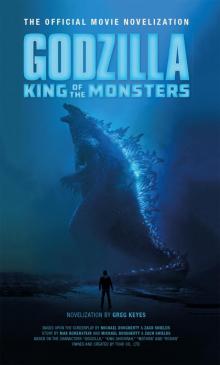 Godzilla
Godzilla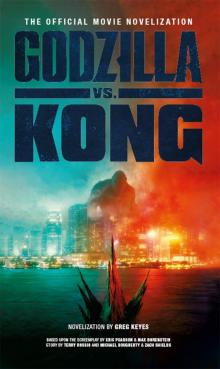 Godzilla vs. Kong
Godzilla vs. Kong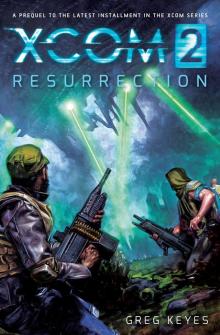 XCOM 2- Resurrection
XCOM 2- Resurrection Independence Day: Crucible (The Official Prequel)
Independence Day: Crucible (The Official Prequel)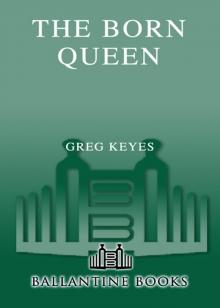 The Born Queen
The Born Queen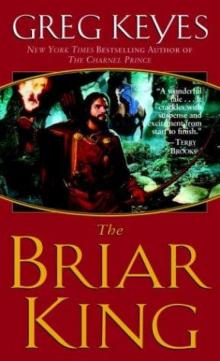 The Briar King
The Briar King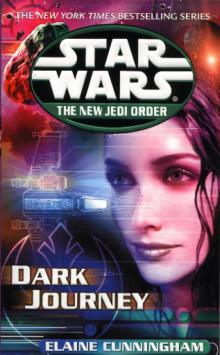 Star Wars The New Jedi Order - Dark Journey - Book 10
Star Wars The New Jedi Order - Dark Journey - Book 10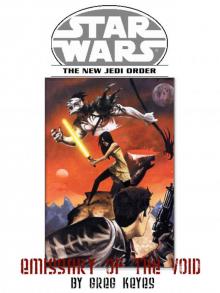 Star Wars: New Jedi Order Book 8b: Emissary of the Void
Star Wars: New Jedi Order Book 8b: Emissary of the Void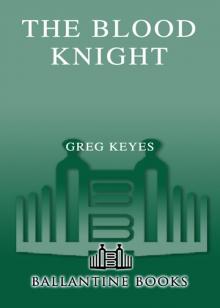 The Blood Knight
The Blood Knight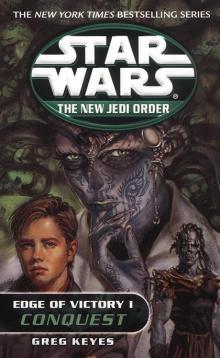 Star Wars - Edge of Victory - Book 1: Conquest
Star Wars - Edge of Victory - Book 1: Conquest Edge of Victory 2 Rebirth
Edge of Victory 2 Rebirth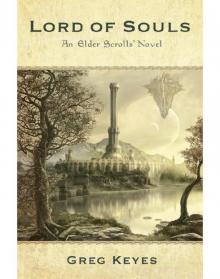 Lord of Souls: An Elder Scrolls Novel
Lord of Souls: An Elder Scrolls Novel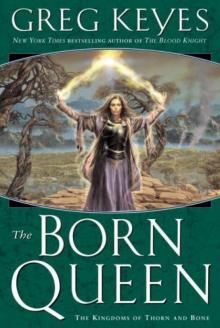 The Born Queen tkotab-4
The Born Queen tkotab-4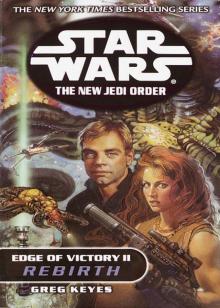 Rebirth: Edge of Victory II
Rebirth: Edge of Victory II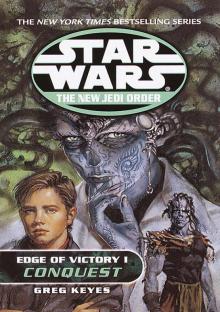 Conquest: Edge of Victory I
Conquest: Edge of Victory I Emissary of the Void
Emissary of the Void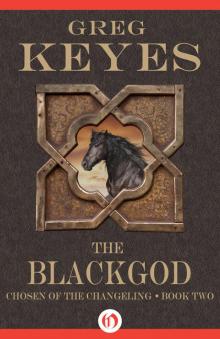 The Blackgod
The Blackgod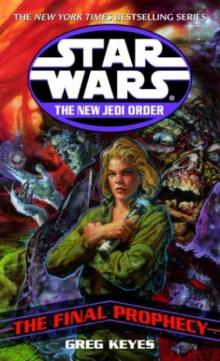 Star Wars The New Jedi Order - The Final Prophecy - Book 19
Star Wars The New Jedi Order - The Final Prophecy - Book 19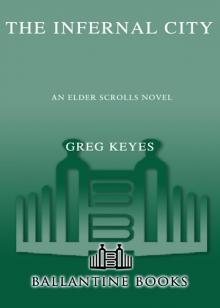 The Infernal City
The Infernal City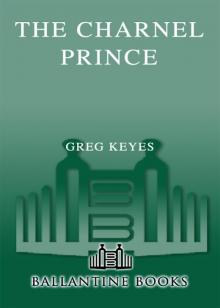 The Charnel Prince
The Charnel Prince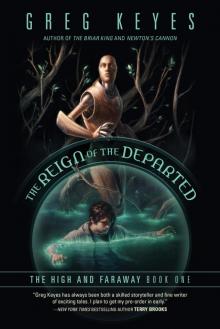 The Reign of the Departed
The Reign of the Departed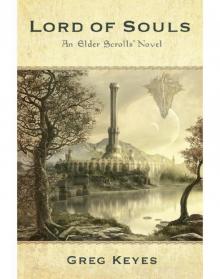 Lord of Souls es-2
Lord of Souls es-2 Chosen of the Changeling
Chosen of the Changeling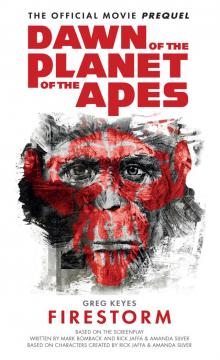 Dawn of the Planet of the Apes
Dawn of the Planet of the Apes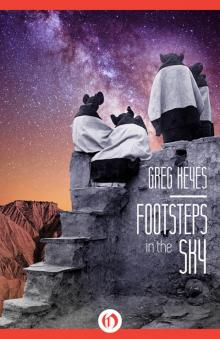 Footsteps in the Sky
Footsteps in the Sky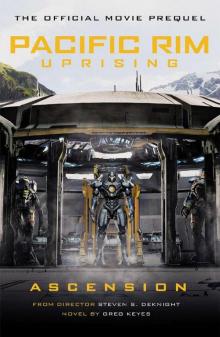 PACIFIC RIM UPRISING ASCENSION
PACIFIC RIM UPRISING ASCENSION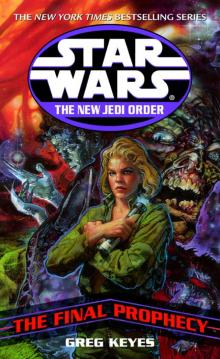 The Final Prophecy: Edge of Victory III
The Final Prophecy: Edge of Victory III